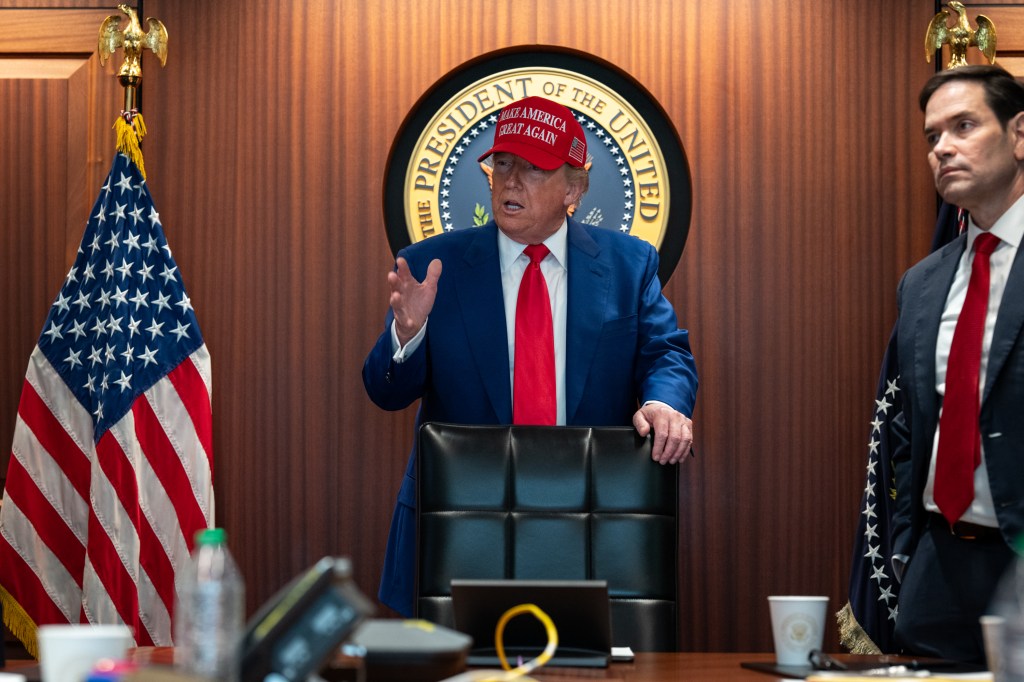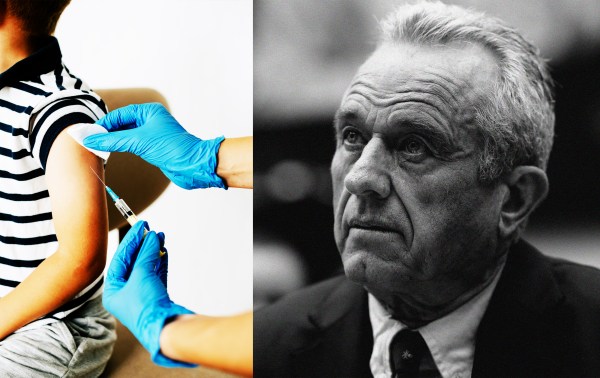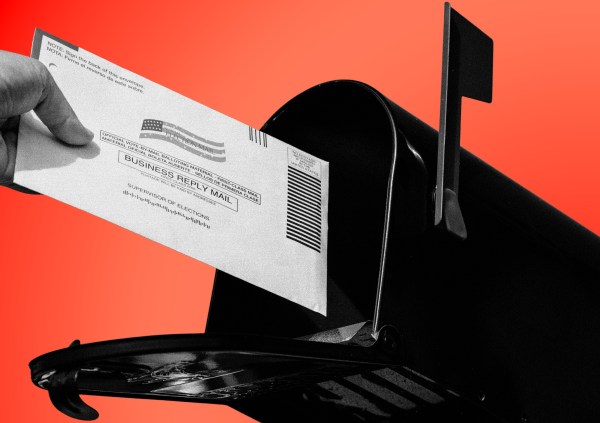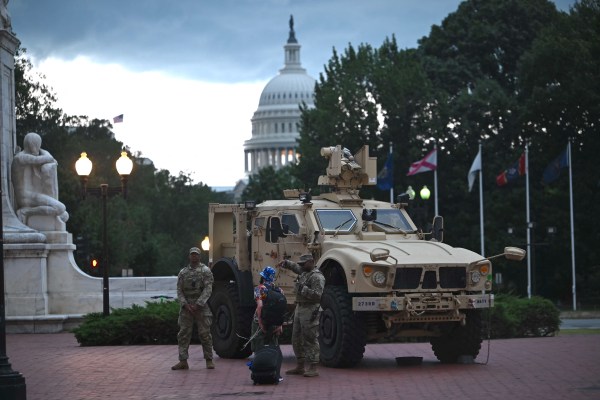Following last Friday’s summit with Russian leader Vladimir Putin, President Donald Trump claimed in a sit-down interview with Fox News that his second-term foreign policy record includes ending “six wars in six months.”
“It’s not for me to negotiate a deal for Ukraine, but I can certainly set the table to negotiate the deal,” Trump told Fox News’ Bret Baier. “I’ve solved six wars in six months.”
When asked to clarify which wars the president was referring to, a White House spokesperson listed seven conflicts in an email to The Dispatch: Thailand and Cambodia, Israel and Iran, Rwanda and the Democratic Republic of the Congo, India and Pakistan, Egypt and Ethiopia, Armenia and Azerbaijan, and—during Trump’s first term—Serbia and Kosovo.
“President Trump is right—he cemented his role as Peacemaker-in-Chief by resolving conflicts around the world,” the White House spokesperson added. “Now, he has brought President Putin to the table for a peace deal.”
While the administration has engaged in several international peace negotiations so far in his second term, a couple of the “wars” the White House mentioned aren’t wars at all, and some saw no direct interventions by the Trump administration in the past six months.
The conflict between Egypt and Ethiopia is one such example. The two countries have been locked in a decade-long dispute over Ethiopia’s construction of the Grand Ethiopian Renaissance Dam (GERD), which Egypt says depletes its share of freshwater from the Nile River. Despite Egypt sending arms to Somalia, a territorial rival of Ethiopia, last year, the dispute over the GERD has never escalated militarily.
“There is no war between Egypt and Ethiopia. Neither side ever wants it to get like that,” Mirette Mabrouk, a senior fellow at the Middle East Institute, told The Dispatch. “Egypt maintains an extremely conservative and restrained foreign policy, always. Ethiopia certainly doesn’t want to set off Egypt.”
Trump first took an interest in negotiating a peace deal in 2019 during his first term. Ethiopia rejected the terms for a U.S.-backed deal in 2020, and Trump temporarily suspended an undisclosed amount of aid to Ethiopia after it “unilaterally” proceeded with further construction of the GERD. In his second term, Trump has not directly intervened in the dispute.
“Nothing’s really happened over the last six months that would lead anybody to think that anything was different,” Mabrouk said. “President Trump, during his first term, had tried to put together an agreement, and it failed at the last moment. … I am not aware of anything that has happened over the last six months.”
Serbia and Kosovo, the two participants of a “war” Trump says he solved in his first term, haven’t engaged in military conflict since 1999, including after Kosovo declared independence in 2008. While Trump in 2020 helped broker an economic normalization agreement between the two countries, which he touted as a “major breakthrough” at the time, Serbia still doesn’t recognize Kosovo as an independent state.
“He wants to stop war, and that is laudable,” Evelyn Farkas, former deputy assistant secretary of defense for Russia, Ukraine, and Eurasia under Obama, told The Dispatch. “His claims to stopping six wars in six months are only possible because he’s defining some military conflicts or even skirmishes, or even lack of skirmishes, in the case of Egypt, Ethiopia, as wars when they’re not actually wars.”
In the case of India and Pakistan, who fought an armed, four-day conflict in May, the State Department and the Indian and Pakistani governments have offered mixed messaging as to the Trump administration’s role in achieving a ceasefire. Several press releases by the State Department confirm that Secretary of State Marco Rubio played an active role in the negotiations, although Indian Foreign Secretary Vikram Misri denied the Trump administration engaged in any “mediation,” and Pakistan’s Foreign Minister Ishaq Dar said “three dozen countries,” including the U.S., were involved in brokering the truce.
“We are proud of the U.S.-brokered ceasefire reached between India and Pakistan, and we commend Prime Ministers Modi and Sharif for choosing the path of peace,” a State Department spokesperson told The Dispatch. Misri’s office did not respond to The Dispatch’s request to clarify the U.S.’s role in reaching a peace deal.
Alyssa Ayres, an adjunct senior fellow for India, Pakistan, and South Asia at the Council on Foreign Relations, said that differentiating “engaged diplomacy” from “formal intervention” might explain the varying statements.
“Diplomatic encouragement for parties to talk is not the same thing as a formal, structured mediation or formal intervention, and it is likely that the Indian side, which rejects a role for third-party intervention in their foreign policy, has this in mind when stating that there was no U.S. role,” Ayres said in an email to The Dispatch. “By contrast, it is likely that the President is pointing to his, and his administration’s, diplomatic outreach of encouragement. That is the best explanation to understand why seemingly divergent views seem to be held at the same time by Washington and New Delhi.”
In other cases of armed conflict, Trump’s interventions appear to have been more consequential. Farkas credits Trump for brokering a ceasefire between Israel and Iran, where Trump’s June airstrikes on Iranian nuclear facilities put a halt to the so-called 12-Day War.
“I think it’s clear that President Trump was the deciding factor in the ceasefire, in the cessation of frankly out-and-out warfare between Israel and Iran,” Farkas said. “Of course, it could flare up again, but I still think it’s safe to give President Trump credit for that.”
Farkas similarly credits Trump for the recently forged peace deal between Azerbaijan and Armenia, which includes exclusive rights for the U.S. to use a strategic corridor in the South Caucasus region. In 2023, Azerbaijan conquered the Armenian-run region of Nagorno-Karabakh, a move policy experts and human rights advocates called “ethnic cleansing.”
“The war had ended under the Biden administration, and they had been working very hard to bring it to a successful peace agreement,” Farkas said. “President Trump also didn’t achieve that yet, though he did get them to sign an important trade and transit agreement.”
Farkas had previously penned an opinion piece in December saying Trump held “solid prospects” for a Nobel Peace Prize in the event he helped end conflicts including the one between Azerbaijan and Armenia.
Trump has successfully reached at least temporary resolutions in other conflicts, but questions loom over their long-term efficacy. In late July, Secretary of State Marco Rubio, in coordination with Chinese diplomats, helped arrange a meeting between Cambodian and Thai government officials in Malaysia, which led to an “unconditional ceasefire” between the two countries, who had been engaged in a border skirmish. Trump had previously threatened to suspend trade with both countries if a ceasefire couldn’t be reached. Just hours after the ceasefire took effect, Thailand accused Cambodia of initiating gunfire near the border, but the agreement appears to have since been upheld.
Similarly, Trump pressured Rwanda and the Democratic Republic of the Congo into reaching a disarmament deal in June, but the U.S. has since sanctioned a Congolese militia group for allegedly violating the terms of the negotiation, and recent reports suggest that Rwandan-backed militants have killed 141 civilians in the eastern Congo in the month after the deal was signed.
While the Trump administration can rightfully take credit for helping to end the 12-day Iran-Israel war and for bringing at least temporary resolutions to the Azerbaijan- Armenia and Thailand-Cambodia skirmishes, it’s false to say that President Trump ended “six wars in six months.”
If you have a claim you would like to see us fact check, please send us an email at factcheck@thedispatch.com. If you would like to suggest a correction to this piece or any other Dispatch article, please email corrections@thedispatch.com.









Please note that we at The Dispatch hold ourselves, our work, and our commenters to a higher standard than other places on the internet. We welcome comments that foster genuine debate or discussion—including comments critical of us or our work—but responses that include ad hominem attacks on fellow Dispatch members or are intended to stoke fear and anger may be moderated.
With your membership, you only have the ability to comment on The Morning Dispatch articles. Consider upgrading to join the conversation everywhere.